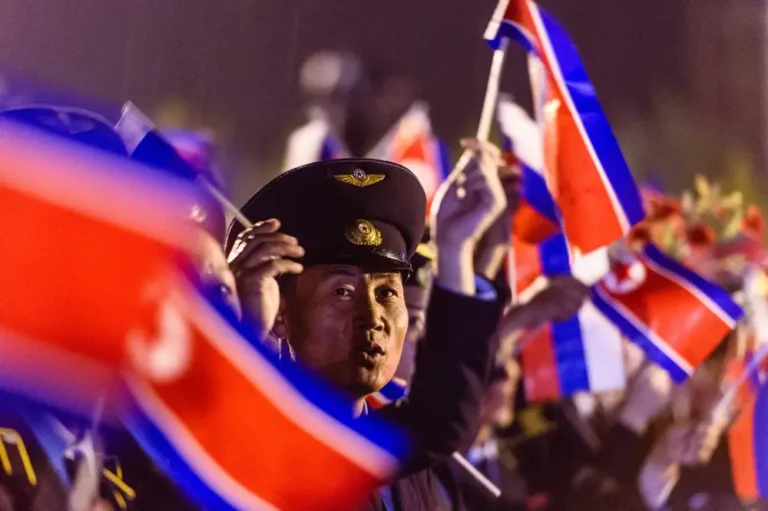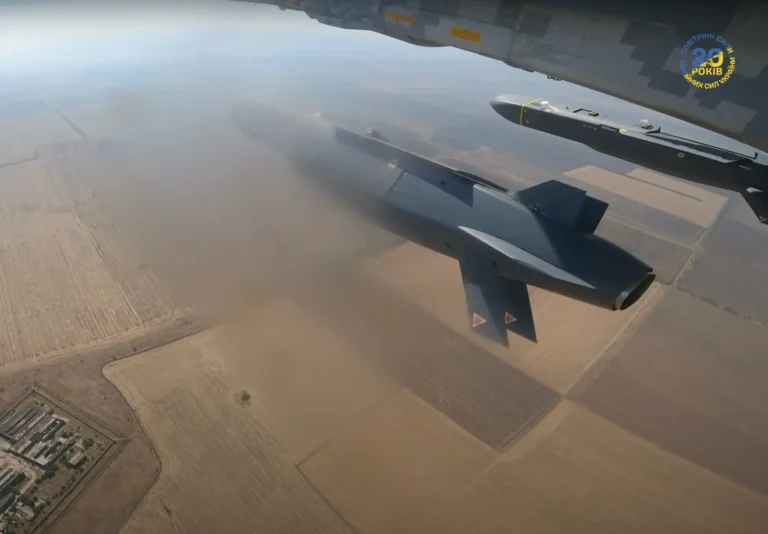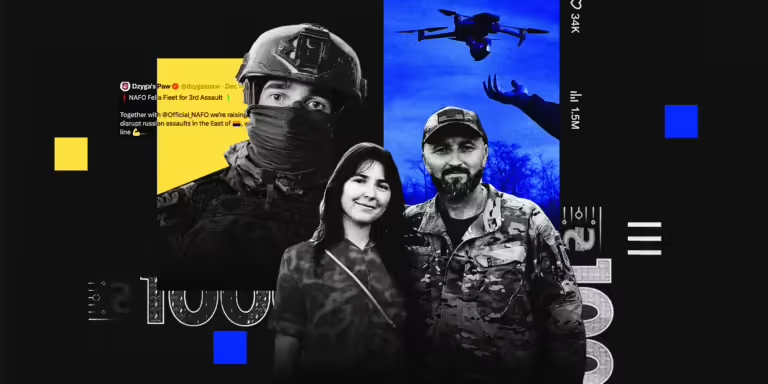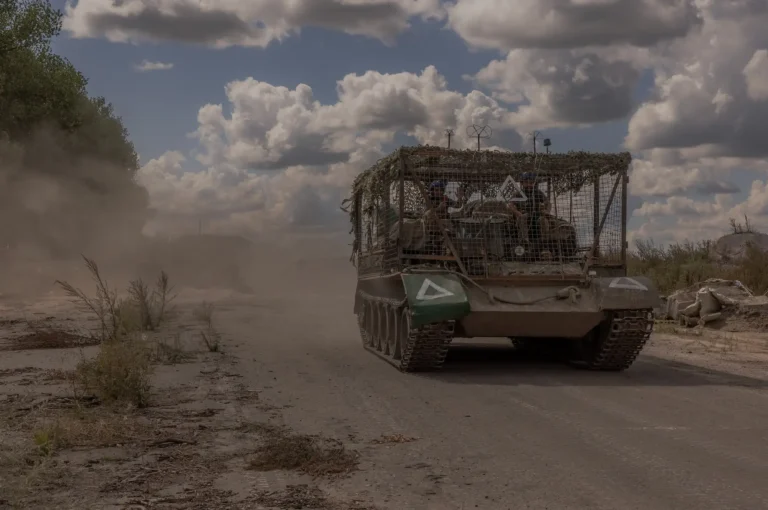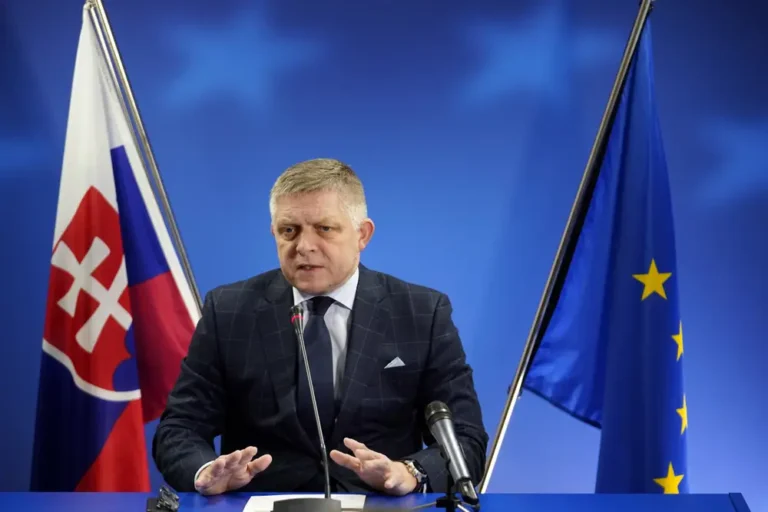Trump got it wrong on a past Iranian missile attack and again cast aside the US troop injuries as nothing more than headaches
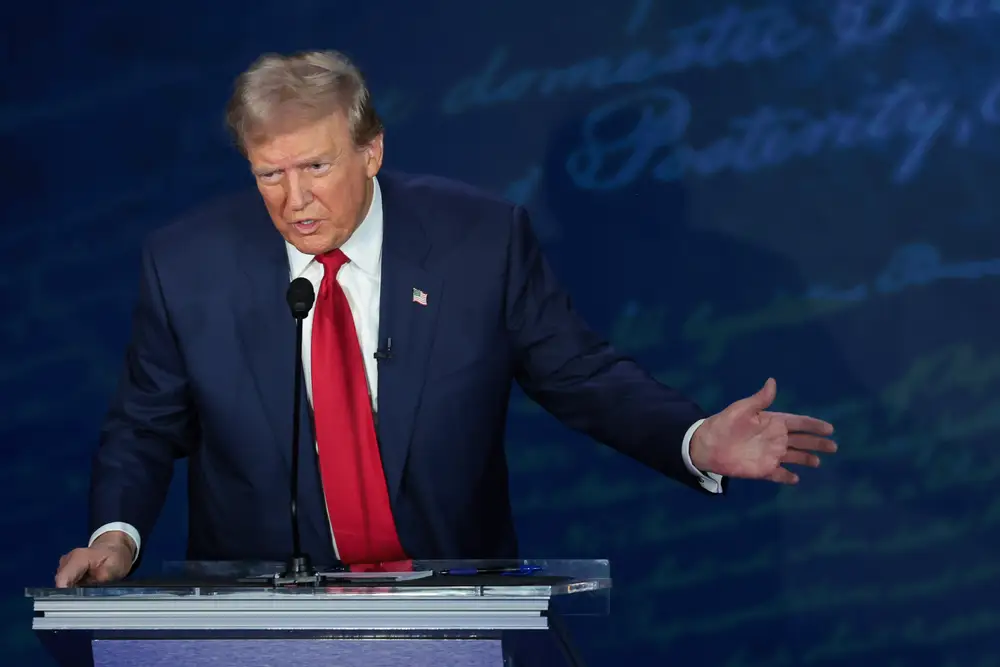
Trump botched the details of the Iranian attack on US forces in 2020, saying no missiles hit US positions in Iraq. He also downplayed troop injuries.
Following Iran’s massive ballistic missile strike on Israel, former President Donald Trump found himself discussing the 2020 Iranian attack on US forces in Iraq. He botched the details and again downplayed the injuries it caused for over 100 US service members.
The former president has repeatedly dismissed the traumatic brain injuries suffered by US forces as “not very serious” and just “headaches,” trivializing what can be serious ailments.
During a press conference on Tuesday, the former president and current Republican presidential nominee said that the “bombs never hit the fort,” apparently referring to the two Iraqi bases where US troops were stationed at the time.
Trump also dismissed the injuries to US soldiers caused by the attack, asking: “What does injured mean? You mean because they had a headache?” And in response to a question on whether he should have “been tougher on Iran” in the wake of the strike, he said there was “nobody ever tougher on Iraq.”
Reporter: Do you believe you should’ve been tougher on Iran after they had launched ballistic missiles in 2020 on US forces leaving more than 100 soldiers injured?
Trump: What does injured mean? You mean because they had a headache.. no one was tougher on Iraq.. pic.twitter.com/MHr1ij04KF
— Acyn (@Acyn) October 1, 2024
Iran’s missiles did, in fact, strike US positions in Iraq. The attack, which was in response to the killing of Iranian Gen. Qasem Soleimani, was the largest ballistic missile attack ever against US forces abroad. There’s visual evidence of the destruction.
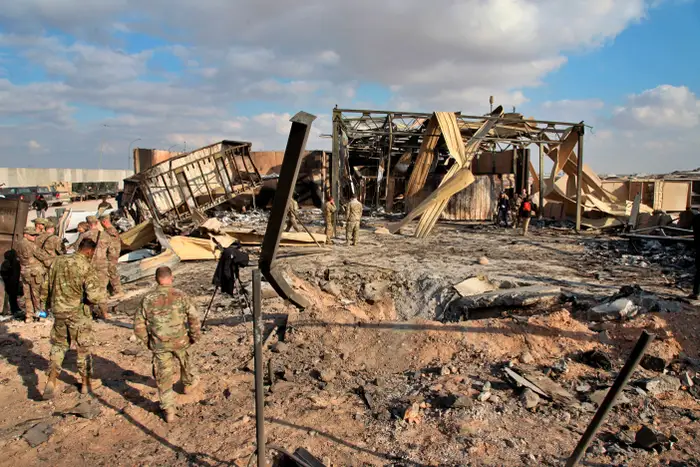
US soldiers standing at the spot hit by Iranian strikes at Ain al-Asad air base, in Anbar, Iraq.
Trump’s inaccurate comments on the injuries echo his previous stance on the over 100 US service members who were diagnosed with traumatic brain injuries after the attacks.
Not long after the attack, Trump told reporters that he “heard that they had headaches and a couple of other things,” but his view was that it wasn’t serious.
“I don’t consider them very serious injuries relative to other injuries that I’ve seen,” he said.
At the time of the 2020 strike, brain injury experts and former US service members told B-17 about the injuries, saying that Trump’s comments trivialize the severeness of the conditions, which can be slow to appear and can be debilitating.
One former Vermont Army National Guard infantryman who was deployed to Afghanistan in 2009 and suffered a mild TBI in combat told B-17 that over 10 years later, he still was still waking up with headaches every day, experienced concentration issues, and occasionally had dizzy spells.
Any brain injury, such as a TBI, can leave injured patients with troubling physical, cognitive, emotional, and behavioral issues, some of which may last their entire lives.
Trump’s downplaying on the injuries also ran at odds with the Pentagon, which, in January 2020, acknowledged the potential ongoing issues for service members and said it would “monitor them the rest of their lives and continue to provide whatever treatment is necessary.”
Some of the US service members affected by the attack were later awarded the Purple Heart for their involvement in the attack, but initially, they were denied. One service member who was affected by the Iranian attack told CBS News a few years ago that he was struggling with vision problems, memory loss, constant headaches, and hearing issues.
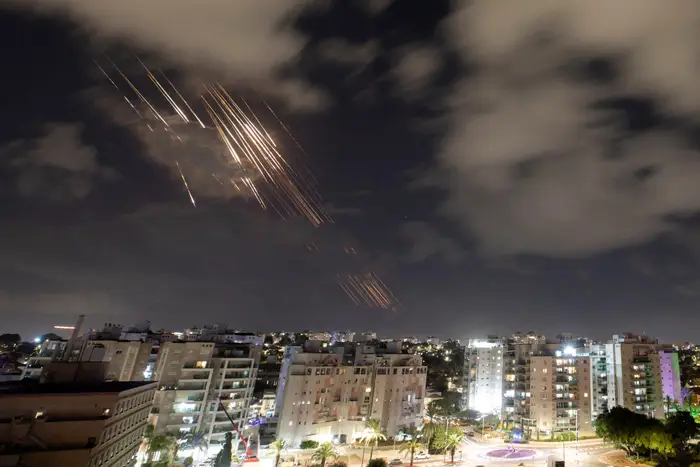
Iran’s attack on Israel was in response to the killings of a Hezbollah and Hamas leader.
In response to Trump’s comments on Tuesday, Minnesota Gov. Tim Walz, a National Guard soldier and the present Democratic vice presidential nominee, said during the vice presidential debate with Republican nominee Ohio Sen. JD Vance that Trump “wrote off” the troops’ injuries as “headaches.”
Trump’s comments about the 2020 strike came on the heels of Iran’s massive missile strike on Israel, which involved over 180 ballistic missiles. US and Israeli officials said the significant attack was largely intercepted and “ineffective,” with Israel vowing to respond.
In response to the attack, Vice President Kamala Harris said that while “we are still assessing the impact,” the “initial indications are that Israel, with our assistance, was able to defeat this attack.” She said “our joint defenses have been effective.”

